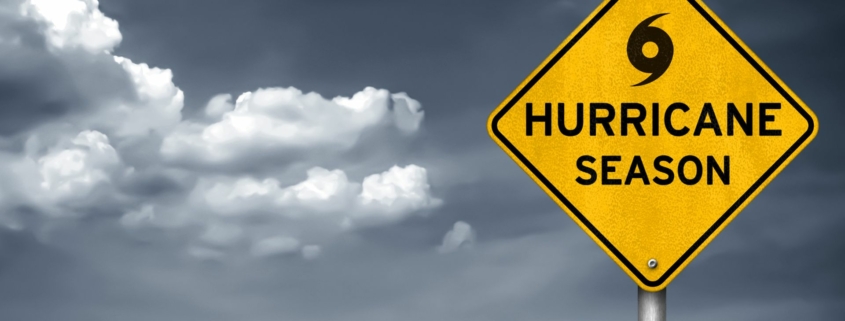4 Tips to Prepare your Home for Hurricane Season
Here in the Houston area, we know that it’s not a matter of if, but when, we will be hit with another significant hurricane or flooding event. I have been lucky to have had no damage during any of the hurricanes, but my home did have water come over the slab during the tax day floods. There are some things you cannot prepare for but there are many things you can do to help minimize, if not prevent, any unnecessary damage to your home.
Here is a list of things you should handle prior to hurricane season.
Review your Insurance Policy
While not directly home related, this should be your first step. It is a good idea to review your insurance coverage to ensure it’s adequate. Many insurance policies are hard to understand, so don’t be afraid to call your provider and have a discussion. Make sure you’re protected from wind and water damage and you understand what those out-of-pocket costs could be. Many times, it can be pretty significant. Also, normal policies do NOT cover flooding events. That is a different type of policy. On a personal note, for the tax day flood that damaged our home, we had flood insurance when many of our neighbors did not. I saw them struggling to repair their homes while I (well, actually my wife) was deciding on what our newly remodeled home should look like.
Seal and Protect your Roof
High winds are the defining characteristic of hurricanes and your roof will be subject to extremely high winds along with the driving rain. Your roof is the first line of defense against the elements and it should be in the best possible shape before severe weather. Inspect your roof for loose or damaged shingles or tiles. Ensure any flashings or flues are properly secured and well sealed. Once water gets into an attic, it can cause significant damage. Prevention is the best protection.
Ensure your gutters are not clogged. Clogged gutters will not allow the water to be directed into the downspout and away from your home. The water will still drain somewhere. It will most likely simply pool over the lip of the gutter and fall next to your home but it could flow behind the gutter and into your soffit and fascia board.
Additionally, don’t forget to look at the trees surrounding your home. Dead trees and branches should be removed. Any tree limbs hanging over the roof or within 10’ of it should be trimmed back.
Seal and Protect your Exterior Walls, Windows and Doors
Those of you reading this who have worked with me know that I am a stickler when it comes to sealing up unwanted holes and seams in the exterior walls. While it may seem petty at the time (and usually ignored at the time of the inspection), those driving winds will push the rain into the wall, windows, doors and possibly your home. Once inside, it can cause serious damage that you may not notice for weeks.
Additionally, look around your yard for any object that could become a projectile. Patio furniture, grills, potted plants should be brought inside or secured.
Be prepared for a loss of Services
During severe weather, you may loss electricity, water or even gas service. Generators are an ideal solution for a loss of power, but adhere to any and all safety guidelines. Portable generators should be kept at least 10’ from any possible air intake into the home. That includes dryer vents. In my area, we hardly ever lose power, but I still have a potable battery backup system that we can use inside to keep some lights and the refrigerator going.
The biggest recommendation I can make is to think, plan and prepare ahead of time. For many of us, this is not the first hurricane season we have weathered (pun intended) but we should take these steps every year. There are many other things that you can do to prepare and additional information can be found your local county office of emergency management such as ReadyHarris.org.
If you have any questions or would like to discuss anything further please leave a comment or contact us directly.




Leave a Reply
Want to join the discussion?Feel free to contribute!